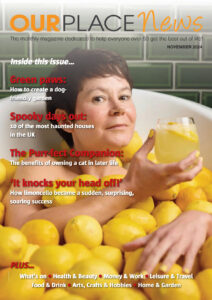‘Relaxed’ 80-year-olds have some of the best sex of the over-50s,
say scientists.
Women in the their eighties have more enjoyable sex than those up to 30 years younger, according to new research.
 The Telegraph reports that data gathered from more than 7,000 over 50s found that, while arousal difficulties tended to become steadily worse in women from the age of 50 to 79, once past 80 problems decreased to levels experienced by women in their 60s.
The Telegraph reports that data gathered from more than 7,000 over 50s found that, while arousal difficulties tended to become steadily worse in women from the age of 50 to 79, once past 80 problems decreased to levels experienced by women in their 60s.
Scientists behind the report, which is published by the International Longevity Centre, believe the late-life boost in satisfaction may be down to older people “feeling happier in their own skin” and accepting that sex does not have to be perfect. They have said the findings demonstrate the need for doctors to ask older patients about their sexual wellbeing.
Approximately 25 per cent of women in their fifties have trouble becoming aroused, according to the data, while the proportion of those having problems in their sixties increased to around 37 per cent, rising to 40 per cent for those in their seventies. But once past the age of 80, only around 35 per cent of women reported having problems.
Dr David Lee, the University of Manchester researcher who wrote the report, said: “There is a perception among society as a whole that sex stops once you are 80, be it through disbelief, disgust or humour. “That clearly isn’t the case and it’s not how over 80s perceive it.”
Data from the survey also revealed that older women were more satisfied with their sex lives the greater the frequency of intimate contacts they had with their partners. The same was true of older men up to the level of two or three intimate contacts a week, beyond which their happiness tended to drop, a phenomenon the researchers could not explain.
Baroness Sally Greengross, Chief executive of ILC-UK, said: “We know that many men and women remain sexually active throughout their lives, and that intimate relationships in later life can continue to have a positive impact of overall health and wellbeing. “Unfortunately, in 2017 there is still a need to dispel myths around relationships in later life.”
(Article source: Telegraph)

